| 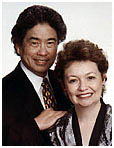 Effective
Teaching...
Effective
Teaching...
by Harry and Rosemary
Wong
December
2006 - January 2007
Rubrics in
Two College Classes
| Close your eyes and visualize: |
A new teacher
Walking into his or her classroom
On the first day of school
With a Classroom Management Plan binder in hand.
|
| What do you see? |
Calmness
Confidence
Success!
|
Dr. Lena Nuccio-Lee, Assistant Professor of
Professional Practice at the University of New Orleans, was given
a few hours to get on campus, gather what she needed out of her
office, and get out. With no utilities in the building after
hurricane Katrina, she went straight to her dimly lit, musty office
and took her desktop computer and her textbooks.

If the University of New Orleans was to reopen she said, “We
were not going down without a fight; we had to offer
almost all of our typically, on campus courses, online.
Before Katrina, very few students had taken online courses and
few faculty members had experience teaching in an web-based environment.”
“What a rude awakening!” she says.
She found out only two days before the start of the semester
that she would be teaching 140 students online.
She had none of her course materials at home and the university
was not allowing anyone on campus. So when a sliver of hope
was granted by letting staff on campus for a few hours, she went
quickly.
EDUC 3110 – Behavior Support and Classroom Management
One course she taught was EDUC 3110- Behavior Support and Classroom
Management. The course description says that this course
focuses on classroom management within school settings.
It includes procedures for group behavior management, strategies
for assessment and responding to individual student behavior,
using a problem-solving approach for changing behavior, and supporting
appropriate behaviors in learning activities and settings.
Most of her course rubrics were on the computer she brought home.
With relief, Lena says, “Rubrics make the students'
lives much easier, but once written, they make the professor's
life easier, too.”
She continues, “Rubrics became extremely important during
the Katrina semester. As you can imagine, at a time of such
uncertainty, it was reassuring for students to know exactly what
was expected of them with respect to specific assignments.”
To review the concept of rubrics, please go to our past two columns,
October 2006, “Assessing
Student Progress with a Rubric” and November 2006, “How
to Write a Rubric.”
Two students, one in each column, say:
“A rubric is a scale that teachers may use to grade an
article of writing from their students. I like rubrics
because they make the student aware of exactly how to answer
the questions or write the assigned article, and it plots a
very fair and easy-to-understand grading system. A rubric
creates a backbone for your paper.”
"Having the rubric was like having the poem in front of
me. The rubric guided me through the process of writing
the poem, when otherwise I would have been clueless."
This is what two of Dr. Lee’s students say about having
a rubric:
Lauren Lunt says, “I like rubrics because they outline
exactly what is expected of you and how to earn a grade.
It also told me that she was prepared to teach.”
Rusty Templet says, “Just as a blueprint supplies dimensions
and details on the internal and external construction of a house,
a good rubric will supply enough detail and direction to help
students construct and complete their assignment successfully.
Her rubric for the course and the execution in addressing its
detail were flawless.”
The Rubrics for EDUC 3110
Dr. Lee uses two rubrics for her classroom management
classes.
- Classroom Management Plan rubric
- Transition Strategy rubric
To see these two rubrics, click here.
The goal of the Classroom Management Plan (CMP) rubric
is for the student to create a binder with their own Classroom
Management Plan.
The goal of the Transition Strategy rubric is
for the student to create and provide instructions on how to teach
and have effective transitions in a classroom. Transitions
are those times in the classroom when students are to move from
one task or procedure to another.
Her course requirement states:
“As you read the texts and other assignments for this
course, you should highlight ideas that you would like to incorporate
in your classroom. These are the types of things that
you will include in your CMP. You may already have ideas
of your own, or that you have borrowed that you know you would
like to include.
“This is your plan, and you design it to meet
your needs. When you borrow ideas from your readings,
resource books or other notable places, remember to cite the
references, and then include them in a reference list.
“Some of the obvious things that you would have in your
CMP are the following: rules, consequences, seating charts,
procedures, quotes you may display, procedures for the first
week of school, attention getters, transition strategies, and
any other thing that you think are important for the management
of your classroom. Refer to the rubric for this assignment.”
The Classroom Management binder the students create is very similar
to the Classroom Management binder that Sarah Jones (now Sarah
Jondahl) prepared when she attended West Kentucky University.
To read about this binder and how Sarah Jones became successful
in her first year as a teacher, please read “How
a Good University Can Help You” in our September 2001
column.
Close your eyes and visualize how successful you will
be with your own classroom management plan in a binder.
You can create your own binder by taking an eLearning
course at
www.ClassroomManagement.com
Validation of Lena Nuccio-Lee’s Online Course
Katrina notwithstanding, Dr. Lee’s classroom management
class was held online and this is what students, Lauren Lunt and
Rusty Templet, said about their experiences:
Lauren Lunt says,
“Dr. Lee's online Classroom Management class at UNO was
organized and predictable. We read each week from Drs.
Harry K. Wong and Rosemary T. Wong's, The First
Days of School and C.M. Charles and Gail W. Senter's
Elementary Classroom Management and
posted individual reflections online. The reading was
both interesting and informative.
“One or two pieces of our classroom management plans
were due weekly, and we were allowed to edit and resubmit with
no penalty if necessary, which was very encouraging. The
system made the overwhelming, seemingly broad project of a classroom
management plan more manageable for us. By breaking it
down to prevent confusion and panic among students, allow instant
and specific feedback to students, and to make grading less
general and less overwhelming for her, Dr. Lee was demonstrating
the classroom management skills that she was teaching.
“Overall, the class ran smoothly. Because it was
an online class, and Dr. Lee could not require face-to-face
meetings, she instead announced at the end of the course that
she would be available in her campus office for optional, individual
meetings about CMPs.
“By making herself available, she ended the course
on a note that said she cared about our work enough to want
to personally review it with each and every one of us.“
Rusty Templet says,
“I’m not sure if the environment and the camaraderie
was one spawned from being survivors of hurricane Katrina, but
there was no lack of dedication, intensity, and passionate within
this classroom.
“This was an interactive class that, although it addressed
information in the text, focused on creating a plan for us to
be successful teachers (via our CMP). As we completed
small components of our CMP, Dr. Lee would review them weekly
and would supply us with feedback to improve our work.
“All of us were artists creating a work of art, not to
be unveiled until the last class of the semester. On that
day, there were many successes to be unveiled with much discussion,
laughter, and mirth. The First Days of School
was referenced many times in class and was very valuable to
all.
“Dr. Lee took personal pride in her work and her students,
as she arrived enthusiastically for each class. Her rubric
for the course and the execution in addressing its detail was
flawless.
“I attribute the outcome of my CMP (Classroom
Management Plan) to Dr. Lee, her instruction, attitude, and
her rubric.
“All courses and instructors are not created equal, and
I am happy to say that I had a diamond for an instructor.”
This diamond of a teacher received the following letter from
a former student:
“It’s Vanessa Flores; remember me? I was
in a couple of your classes. One of them was Classroom
Management last fall. Anyway I wanted to give you an update
because I am now teaching Spanish full time in Cleveland, Ohio.
I moved here a couple of months ago because my husband had to
relocate in order to finish his residency.
“What I want to let you know is that I have been using
my Classroom Management Plan (CMP) to set up my classes.
I must admit that at the time I thought some of the things you
assigned were not necessary.
“I now realize that no matter the age group classroom
management is very, very important and crucial to a successful
year for both the teacher and the students.
“Again thanks... your forever grateful student.”
Vanessa
Classroom Management in Galveston, Texas
PACT stands for Partners in Alternative Certification
for Teachers and is Galveston County’s Alternative Teacher
Certification Program. The PACT program is an alternative
teacher certification program created by two local Texas community
colleges, College of the Mainland and Galveston College, to recruit
and train post-baccalaureate individuals interested in teaching.
They partner with the Galveston County independent school district,
as well as state-approved charter and private schools, to help
them meet their teacher shortages by supplying them with highly
qualified teaching professionals and have since assisted almost
300 new teachers in reaching full state certification. More
information can be found at www.pact4teachers.com/about.htm.
Carla Boone, Director, Teacher Education Center,
conducts the classroom management course at the College of the
Mainland for the PACT.

College of the Mainland is a community college located in Texas
City, Texas, near Galveston.
Some highlights from the syllabus are:
- The purpose of the course is to teach the user how to structure
and organize a classroom for maximum student learning time.
By the end of the course, the user will have created a binder
containing a personal Classroom Management Action Plan.
- This online course is designed to improve the quality of
the teacher’s classroom management skills so he or she
can maximize student learning time.
- Students will submit the Classroom Management Action Plan
to the PACT instructor within one week of course completion
for assessment.
To see how student work will be assessed, click here
to see the online course scoring rubric.
This is what Carla Boone says about the rubric:
“Throughout my teaching career, I have utilized various
styles of rubrics. The structure of the rubric has varied
with the type of project assigned. If distributed to students
at the same time the assignment is initially given, I have found
them to be excellent guides that motivate students to contribute
their best efforts.
“Conversely, I have experienced with my own children,
that when teachers fail to provide guidance for activity and
project based activities, students who wish to excel will flounder
and become frustrated as they do not clearly understand what
the teacher expects from them.”
A student, Susan Montes, says,
“The course rubric was extremely helpful. It gave
me a clear explanation of what was expected of me in order to
receive a satisfactory completion of the course. It was
also helpful in providing step-by-step instructions of how the
Classroom Management binder needed to be organized.”
Carla said that she became aware of our online Classroom Management
course (www.ClassroomManagement.com)
earlier this year and began offering the course as a professional
development opportunity to teachers that had previously trained
and who were participating in their Transition to Teaching Grant.
These teachers were committed to work in high-need school districts
for three years, and most had just completed their first year
of teaching.
About 70 teachers completed the Classroom Management course over
the summer.
- Many of these teachers told her that the course taught them
so much and had equipped them with new practices they could
implement in the new school year.
- Others, it appeared, quickly went through the course and did
not take the time to complete some or all of the binder pages
and, therefore, did not really grow professionally from this
learning opportunity.
As a result of this first offering and the positive comments
heard from those teachers who took the time to complete the course
learning activities, they decided to require this Classroom Management
course of all new PACT students.
To assess the new students at the completion of this online course,
Carla realized that it would be necessary to create a scoring
rubric. She said, “I have always believed that students
must know what is expected of them from the beginning.
“If they know the expectation at the beginning
of the course, they know how to approach their learning activities.
A scoring rubric establishes and solidifies the expectation and,
if written well, clearly communicates to the student how their
product will be assessed. I particularly like utilizing
rubrics for project or activity based learning.”
She further says, “This particular rubric clearly identifies
the course requirements (items to be included in the binder) so
that students know exactly what documents should be included in
their final product. It also identifies the total points,
or point value, for each item to be included in the binder and
a definition of the values 1-5 (Unacceptable — Excellent)
so students know the extent of understanding we want conveyed
for each course requirement.
“The final column allows me, the campus instructor, to
complete the assessment based on the initial expectation.
Once assessed, I will return the completed form to the student
so they can review total points earned (final course grade).
Rubrics Improve Student Learning
As a student, did you ever raise your hand and ask of the teacher,
“How will you be grading us?”
Everyone wants to know up front how they will be scored,
judged, and scrutinized. And did you ever have
a teacher who passed papers back to you, took off points for some
omission, and you muttered under your breath, “That’s
not fair. You did not tell us how we were going to be graded.”
Our jobs as teachers is to create success for students.
Rubrics are the road maps to that success. Students know
up front what the expectation is and you know how you are going
to grade it. Scores should not be a surprise to the student.
Based on the rubric, the students should be able to get a good
estimate of the final grade.
Having a rubric makes communications with the home easier
as well. Parents, guardians, aunts, uncles, grandparents,
care givers—all know the expectation for completion of a
paper, project, or report, and how it will be scored. The
home can use the rubric as an aid to help the child succeed.
Students love classrooms where they know how it will
be run.
- These are the classrooms with procedures in place and students
are
responsible to those procedures.
- These are the classrooms with rubrics in place and students
are
responsible for their learning.
Students love teachers who share with them the expectations
for success in the class.
We all want to succeed. Look at ways you can add a rubric
to what you teach. You’ll be able to point your students
down the road of success with this simple tool.
Close your eyes and visualize:
|
Your classroom
Filled with students
learning and achieving.
|
What do you see?
|
Calmness in the students as they know
how their learning will be assessed.
Confidence in yourself as a professional
with the skills needs to help children grow and learn.
Success!
|
 For a printable version of this article click
here.
For a printable version of this article click
here.
Harry & Rosemary Wong products: http://www.harrywong.com/product/
Email Harry Wong: harrywong@teachers.net
Gazette Articles by Harry & Rosemary Wong:
If you spot a link that appears to be out-of-date, please alert us at webmaster@teachers.net!
- A Grateful Goodbye After 15 Years (Jun 2015)
- Love, Marriage, and Babies, Oh My! (May 2015)
- Retention Rate Is 100 Percent (Apr 2015)
- Teacher Effectiveness and Human Capital (Mar 2015)
- Training Teachers to Be Effective (Feb 2015)
- Making Deals Is Ineffective (Dec 2014 / Jan 2015)
- Retrieving and Carrying Electronic Devices (Nov 2014)
- Sharing to Succeed (Oct 2014)
- How a University Prepares Its Students (Sep 2014)
- Effective Teaching (Aug 2014)
- Your Future Is in Your Hands (June/July 2014)
- The Classroom Management Book (May 2014)
- When Students Succeed; Teachers Succeed (April 2014)
- Teaching New Teachers How to Succeed (March 2014)
- Execute and Praise (February 2014)
- Shaping a Solid Foundation (Dec 2013 / Jan 2014)
- The Most Misunderstood Word (November 2013)
- How to Start Class Every Day (October 2013)
- Prevention: The Key to Solving Discipline Problems (September 2013)
- Planning, Planning, Planning (August 2013)
- Are You THE One? (June / July 2013)
- Practical Examples That Work (May 2013)
- A Disability Is Not a Handicap (Apr 2013)
- Totally Inexcusable (Mar 2013)
- Be Proud of Public Education (Feb 2013)
- Structure Will Motivate Students (Dec 2012 / Jan2013)
- Orchestrating the Classroom (Nov 2012)
- The Lasting Impact of Instructional Coaching (Oct 2012)
- Learning, Laughing, and Leaving a Legacy (Sep 2012)
- Twenty-two, First Year, and Legit (Aug 2012)
- A Master Teacher of Teachers (June/July 2012)
- Where Going to School Means Success (May 2012)
- A Nationally Celebrated High School (Apr 2012)
- The Highest Rated School in New York City, Part 2 (Mar 2012)
- The Highest Rated School in New York City, Part 1 (Feb 2012)
- The Importance of Culture (Dec 2011 / Jan 2012)
- You Can Teach Classroom Management (Nov 2011)
- Seamless, Transparent, and Consistent (Oct 2011)
- Coaching Teachers to Be Effective Instructors (Sep 2011)
- How a Principal Creates a Culture of Consistency (Aug 2011)
- Graduation Begins in Your Classroom (June/July 2011)
- The Inspiration of a Mother (May 2011)
- How to Be an Effective Leader (Apr 2011)
- Learning Objectives: The Heart of Every Lesson (Mar 2011)
- Even Shakespeare Had Structure (Feb 2011)
- Effectiveness Defined: It's Not a Mystery (Dec 2010 / Jan 2011)
- Surviving Without a Principal (Nov 2010)
- Achieving Greatness: Locke Elementary School, Part 2 (Oct 2010)
- Teaching Greatness: Locke Elementary School, Part 1 (Sep 2010)
- Effective from the Start (Aug 2010)
- Ten Year Summary of Articles, 2000 to 2010 (June/July 2010)
- The Success of a Culture of Consistency (May 2010)
- Training Teachers to Be Effective (Apr 2010)
- Learning to Teach, Teaching to Learn (Mar 2010)
- Turning Teaching Dreams into Reality (Feb 2010)
- Dreams and Wishes Can Come True (Dec 2009 / Jan 2010)
- Success in a State Controlled School (Nov 2009)
- Inner City Is Not An Excuse (Oct 2009)
- Exceeding All Expectations (Sep 2009)
- Teachers Are the Difference (Aug 2009)
- Nine Year Summary of Articles, 2000 to 2009 (Jun/Jul 2009)
- Teachers Are the Greatest Assets (May 2009)
- The Tools for Success (Apr 2009)
- Assessing for Student Learning (Mar 2009)
- To Be an Effective Teacher Simply Copy and Paste (Feb 2009)
- The Sounds of Students Learning and Performing (Dec 2008)
- A School That Achieves Greatness (Nov 2008)
- Boaz City Schools: Professional Learning Teams (Oct 2008)
- It Was Something Close to a Miracle (Sep 2008)
- A Computer Teacher Shows the Way (Aug 2008)
- Eight Year Summary of Articles, 2000 to 2008 (Jun/Jul 2008)
- An Amazing Kindergarten Teacher (May 2008)
- Schools That Beat the Academic Odds (Apr 2008)
- Academic Coaching Produces More Effective Teachers (Mar 2008)
- Coaches Are More Effective than Mentors (Feb 2008)
- Wrapping the Year with Rap! (Dec 2007/Jan 2008)
- The Floating Teacher (Nov 2007)
- Taking the Bite Out of Assessment—Using Scoring Guides (Oct 2007)
- Ten Timely Tools for Success on the First Days of School (Sep 2007)
- First Day of School Script - in Spanish, Too! (Aug 2007)
- Seven Year Summary of Articles, 2000 to 2007 (Jun 2007)
- Effective Teachers End the Year Successfully (May 2007)
- Training Gen Y Teachers for Maximum Effectiveness (Apr 2007)
- Classroom Management Applies to All Teachers (Mar 2007)
- Students Want a Sense of Direction (Feb 2007)
- Rubrics in Two College Classes (Dec 2006/Jan 2007)
- How to Write a Rubric (Nov 2006)
- Assessing Student Progress with a Rubric (Oct 2006)
- A 92 Percent Homework Turn-in Rate (Sep 2006)
- Effective Teachers Are Proactive (Aug 2006)
- Five Year Summary of Articles (Jun 2006)
- Hitting the Bulls Eye as a Beginning Teacher (May 2006)
- They're Eager to Do the Assignments (Apr 2006)
- The Success of Special Ed Teachers (Mar 2006)
- What Teachers Have Accomplished (Feb 2006)
- Fifty Years Ago, The Legacy (Dec 2005/Jan 2006)
- The Emergency Teacher (Nov 2005)
- Classroom Management Is Not Discipline (Oct 2005)
- A Successful First Day Is No Secret (Sep 2005)
- The Most Important Factor (Aug 2005)
- Four Year Summary of Articles (Jul 2005)
- Improving Student Achievement Is Very Simple (Part 2) (Jun 2005)
- Improving Student Achievement Is Very Simple (Part 1) (May 2005)
- Never Cease to Learn (Apr 2005)
- His Classroom Is a Real Life Office (Mar 2005)
- The Power of Procedures (Feb 2005)
- The First Ten Days of School (Jan 2005)
- PowerPoint Procedures (Nov/Dec 2004)
- The Saints of Education (Oct 2004)
- How Procedures Saved a Teacher's Life (Sep 2004)
- How to Help Students with Their Assignments (Aug 2004)
- Three Year Summary of Articles (Jun/Jul 2004)
- His Students are All Certified (May 2004)
- What to Do When They Complain (Apr 2004)
- A Well-Oiled Learning Machine (Mar 2004)
- The Effective Teacher Adapts (Feb 2004)
- How to Start a Lesson Plan (Aug 2003)
- Applying for a Teaching Job in a Tight Market - Part 2 (Jun/Jul 2003)
- Applying for a Teaching Job in a Tight Market (May 2003)
- The Effective Substitute Teacher (Apr 2003)
- A First Day of School Script (Mar 2003)
- How to Retain New Teachers (Feb 2003)
- No Problem With Hurricane Lili (Dec 2002)
- A Class Size of 500 (Nov 2002)
- Effective Practices Apply to All Teachers (Oct 2002)
- Dispensing Materials in Fifteen Seconds (Sept 2002)
- How To Start School Successfully (Aug 2002)
- Teaching Procedures Is Teaching Expectations (June - July 2002)
- $50,000 to Replace Each Teacher (May 2002)
- Even Superintendents Do It (Apr 2002)
- Impossible, No Job Openings? (Mar 2002)
- A Stress Free Teacher (Feb 2002)
- A Most Effective School (Jan 2002)
- Van Gogh in Nine Hours (Dec 2001)
- The Effective Teacher Thinks (Nov 2001)
- How a Good University Can Help You (Sep 2001)
- How to Motivate Your Students (May 2001)
- How to Recognize Where You Want to Be (Apr 2001)
- What Successful New Teachers Are Taught (Mar 2001)
- A Journey of the Heart (Feb 2001)
- The Miracle of Teachers (Jan 2001)
- It's Not the Students. It's the Teacher. (Dec 2000)
- The First Five Minutes Are Critical (Nov 2000)
- How to Start a Class Effectively (Oct 2000)
- The Problem Is Not Discipline (Sep 2000)
- There Is Only One First Day of School (Aug 2000)
- Applying for Your First Job (Jul 2000)
- Your First Day (Jun 2000)
Browse through the latest posts from the Classroom Management
Chatboard...
|




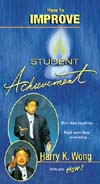
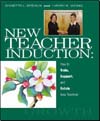
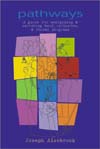


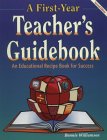
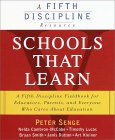

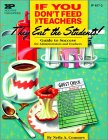
 Effective
Teaching...
Effective
Teaching... 
